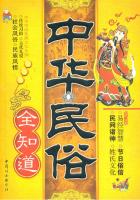The South, however, was opposed to this policy, for it wanted to encourage the cheapest method of shipping its raw materials. The South also wanted a larger number of slaves to meet its labor demands. To this need New England was not favorably disposed. To reconcile the conflicting interests of the two sections a compromise was finally reached. The requirement of a two-thirds vote of both houses for the passing of navigation acts which the Southern members had obtained was abandoned, and on the other hand it was determined that Congress should not be allowed to interfere with the importation of slaves for twenty years. This, again, was one of the important and conspicuous compromises of the Constitution. It is liable, however, to be misunderstood, for one should not read into the sentiment of the members of the Convention any of the later strong prejudice against slavery.
There were some who objected on moral grounds to the recognition of slavery in the Constitution, and that word was carefully avoided by referring to "such Persons as any States now existing shall think proper to admit." And there were some who were especially opposed to the encouragement of that institution by permitting the slave trade, but the majority of the delegates regarded slavery as an accepted institution, as a part of the established order, and public sentiment on the slave trade was not much more emphatic and positive than it is now on cruelty to animals. As Ellsworth said, "The morality or wisdom of slavery are considerations belonging to the States themselves," and the compromise was nothing more or less than a bargain between the sections.
The fundamental weakness of the Confederation was the inability of the Government to enforce its decrees, and in spite of the increased powers of Congress, even including the use of the militia "to execute the laws of the Union," it was not felt that this defect had been entirely remedied. Experience under the Confederation had taught men that something more was necessary in the direction of restricting the States in matters which might interfere with the working of the central Government. As in the case of the powers of Congress, the Articles of Confederation were again resorted to and the restrictions which had been placed upon the States in that document were now embodied in the Constitution with modifications and additions. But the final touch was given in connection with the judiciary.
There was little in the printed draft and there is comparatively little in the Constitution on the subject of the judiciary. A Federal Supreme Court was provided for, and Congress was permitted, but not required, to establish inferior courts; while the jurisdiction of these tribunals was determined upon the general principles that it should extend to cases arising under the Constitution and laws of the United States, to treaties and cases in which foreigners and foreign countries were involved, and to controversies between States and citizens of different States. Nowhere in the document itself is there any word as to that great power which has been exercised by the Federal courts of declaring null and void laws or parts of laws that are regarded as in contravention to the Constitution. There is little doubt that the more important men in the Convention, such as Wilson, Madison, Gouverneur Morris, King, Gerry, Mason, and Luther Martin, believed that the judiciary would exercise this power, even though it should not be specifically granted. The nearest approach to a declaration of this power is to be found in a paragraph that was inserted toward the end of the Constitution.
Oddly enough, this was a modification of a clause introduced by Luther Martin with quite another intent. As adopted it reads:
"That this Constitution and the Laws of the United States . . . and all Treaties . . . shall be the supreme Law of the Land; and the Judges in every State shall be bound thereby; any Thing in the Constitution or Laws of any State to the Contrary notwithstanding." This paragraph may well be regarded as the keystone of the constitutional arch of national power. Its significance lies in the fact that the Constitution is regarded not as a treaty nor as an agreement between States, but as a law; and while its enforcement is backed by armed power, it is a law enforceable in the courts.
One whole division of the Constitution has been as yet barely referred to, and it not only presented one of the most perplexing problems which the Convention faced but one of the last to be settled--that providing for an executive. There was a general agreement in the Convention that there should be a separate executive. The opinion also developed quite early that a single executive was better than a plural body, but that was as far as the members could go with any degree of unanimity. At the outset they seemed to have thought that the executive would be dependent upon the legislature, appointed by that body, and therefore more or less subject to its control. But in the course of the proceedings the tendency was to grant greater and greater powers to the executive; in other words, he was becoming a figure of importance. No such office as that of President of the United States was then in existence. It was a new position which they were creating. We have become so accustomed to it that it is difficult for us to hark back to the time when there was no such officer and to realize the difficulties and the fears of the men who were responsible for creating that office.














